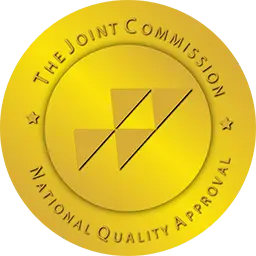Evidence-based or Holistic approach? This is a never-ending debate among mental health professionals. Although both treatments are highly effective, the intensity can vary from person to person.
Are you searching for an alternative and holistic approach to support your teenager coping with depression, anxiety, or related disorders? According to the American Psychological Association, a meta-analysis of over 200 studies found mindfulness therapies effective for stress, anxiety, and depression.
In this article, we will discuss various holistic therapies that can benefit your teen’s mental well-being. So, let’s Elevate, Empower, Overcome
Holistic Therapies Highly-Recommended For Teens
Meditation
Meditation focuses on the mind and eliminates distractions, aiming to attain a state of heightened awareness, inner calm, and mental clarity. Various forms of meditation share common elements such as focused attention, controlled breathing, and mindfulness; their benefits extend to physical, mental, and emotional well-being.
Beyond stress reduction, meditation plays a significant role in enhancing emotional well-being. It involves observing thoughts and emotions without judgment, contributing to improved emotional regulation.
Improved sleep is another positive outcome associated with meditation. The practice calms the mind and promotes relaxation, creating an environment conducive to better sleep quality. Additionally, meditation is helpful for anxiety reduction. Mindfulness meditation equips individuals with the ability to observe anxious thoughts without becoming overwhelmed, thereby aiding in the management of anxiety disorders.
Furthermore, studies utilizing brain imaging techniques have shown that regular meditation induces positive changes in brain structure. These structural alterations are associated with memory, learning, and self-awareness improvements.
Yoga
Yoga, originating in ancient India, has undergone a transformative evolution spanning thousands of years. This holistic discipline integrates physical postures (asanas), breath control (pranayama), meditation, and ethical principles, offering a comprehensive approach to well-being encompassing the physical, mental, and spiritual aspects.
A key aspect of yoga involves physical flexibility and strength. Practitioners can cultivate flexibility, enhance balance, and build strength through various postures and movements. Consistent practice improves joint mobility and overall physical fitness, making yoga a versatile and effective exercise regimen.
The fundamental role of breath control, known as pranayama, distinguishes yoga as a mindful practice. Incorporating conscious breathing exercises into the routine enhances lung capacity and improves respiratory function. Moreover, the focus on breath promotes a sense of calm and mindfulness, aligning with the holistic nature of yoga.
Hence, Yogic philosophy emphasizes balanced energy flow within the body. Specific poses and breathwork stimulate and unblock energy channels, fostering an overall sense of vitality. By harmonizing energy flow, yoga promotes physical health, mental clarity, and spiritual well-being, reinforcing its reputation for providing multifaceted benefits to practitioners.
Talk Therapy
Talk therapy, also known as psychotherapy, is a therapeutic approach centered on verbal communication between a trained mental health professional and individuals or groups seeking support and guidance. This form of therapy delves into emotional and psychological challenges, fostering self-awareness and facilitating positive changes in thoughts, feelings, and behaviors.
Establishing a therapeutic relationship is central to the effectiveness of talk therapy. This involves the development of a trusting and confidential bond between the therapist and the client, creating a secure space for individuals to openly and honestly express themselves. The supportive alliance formed in this process becomes instrumental in the therapeutic journey.
An essential aspect of talk therapy is the exploration of thoughts and emotions. Individuals are encouraged to articulate and examine their thoughts, feelings, and experiences. Through this exploration, a deeper understanding of oneself, personal motivations, and behavior patterns can emerge, contributing to personal growth and self-discovery.
Talk therapy is also practical, involving problem-solving and goal-setting. Therapists and clients often collaboratively identify specific goals and work towards solutions for various challenges. The therapeutic process includes assistance from the therapist in developing practical strategies to manage difficulties and achieve positive outcomes, promoting tangible and lasting changes in the individual’s life.
Art Therapy
Art therapy, a form of expressive therapy, leverages the creative process of making art to enhance physical, mental, and emotional well-being. Focused on the act of creation, art therapy recognizes artwork as a powerful medium for communication and self-expression.
A key aspect of art therapy lies in its capacity to facilitate self-expression. By providing a non-verbal outlet, individuals can articulate thoughts, feelings, and experiences that might be challenging to convey verbally. The creative process offers a unique avenue for individuals to express themselves authentically, fostering a deeper understanding of their internal world.
Moreover, art therapy contributes to empowerment and a sense of control. Engaging in the creative process allows individuals to take charge, fostering empowerment that can extend beyond the artistic realm. This newfound sense of control can positively impact other aspects of life, increasing confidence in one’s abilities.
Therapists often utilize the artwork created in sessions as a valuable tool for discussion. Analyzing the artwork can yield insights into the individual’s emotions, thoughts, and experiences, promoting communication and self-discovery. The visual nature of the artwork provides a tangible representation of the individual’s inner world, aiding in therapeutic exploration.
Art therapy fosters social connection and a sense of community in a group context. Group art therapy sessions encourage social interaction, allowing participants to share their creative processes with others. This communal aspect creates a supportive and non-judgmental environment, enhancing the therapeutic experience and promoting a sense of belonging.

Holistic Nutrition and Well-being
Holistic Nutrition and Wellness Programs serve as crucial components in supporting teens with eating and substance use disorders, addressing their well-being on nutritional, physical, and emotional levels.
These programs emphasize balanced diets comprising a variety of fruits, vegetables, whole grains, lean proteins, and healthy fats. Such dietary choices aim to replenish essential vitamins and minerals that may be depleted due to substance use, contributing to overall health restoration.
Additionally, an integral aspect of holistic nutrition programs is the recognition of proper hydration as fundamental to well-being and the detoxification process. These programs underscore the importance of maintaining adequate water intake to facilitate the flushing out of toxins, improve digestion, and support the body’s natural detoxification mechanisms.
By prioritizing hydration, individuals undergoing recovery can enhance their overall physical health and contribute to the effectiveness of the detoxification process, promoting a holistic approach to wellness in the context of substance use disorders.
Acupuncture
An ancient Chinese practice, acupuncture involves the insertion of thin needles into specific points on the body to restore balance and promote energy flow. This approach is based on the belief that restoring balance to the body’s energy pathways can enhance overall well-being during substance withdrawal.
During the detoxification process, acupuncture’s stimulation of particular points in the body may contribute to the regulation of the nervous system, reducing the severity of symptoms like anxiety, nausea, and insomnia.
Acupuncture’s potential impact on neurotransmitters, such as dopamine and serotonin, is significant. These neurotransmitters play crucial roles in mood regulation, reward pathways, and the reinforcing effects of substances. By influencing the release and balance of these neurotransmitters, acupuncture offers a holistic approach to managing not only withdrawal symptoms but also aids in relapse prevention.
Final Words
The World Health Organization estimates that between 65 and 80% of people use holistic naturopathic medicine as their primary source of care. If you want to avoid heavy drugs and antidepressants, holistic therapy is an excellent approach to your teen’s mental health.
Crown Health Partner’s trained professionals are highly skilled in teen counseling and therapy in Massachusetts. Do you have any queries? Feel free to call us at 888.557.1552. It’s time to take action!



